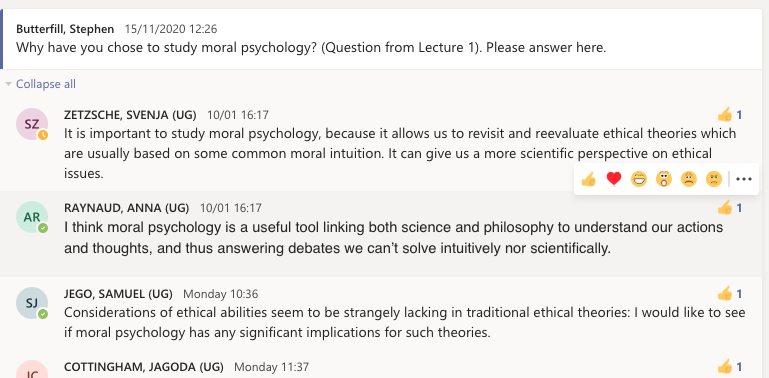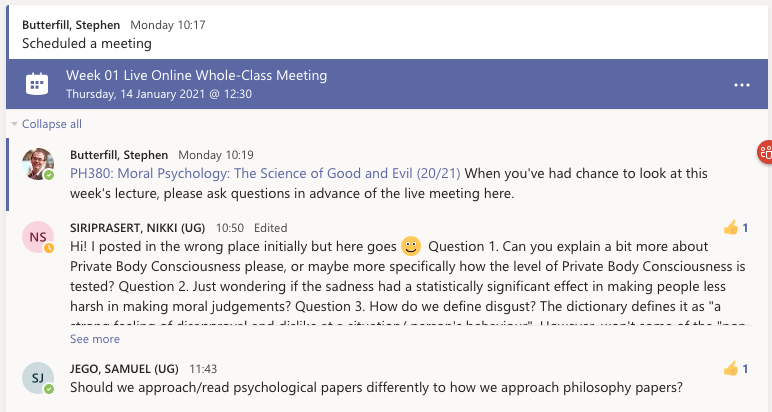Click here and press the right key for the next slide.
(This may not work on mobile or ipad. You can try using chrome or firefox, but even that may fail. Sorry.)
also ...
Press the left key to go backwards (or swipe right)
Press n to toggle whether notes are shown (or add '?notes' to the url before the #)
Press m or double tap to slide thumbnails (menu)
Press ? at any time to show the keyboard shortcuts


Nikki (Q3)
How do we define disgust?
The dictionary defines it as "a strong feeling of disapproval and dislike at a situation/ person's behaviour". However, won't some of the "non-disgusting" vignettes pass as a "disgusting" by the dictionary's definition?
‘... feelings of disgust; we are concerned with whether [people] use such feelings to guide their judgments’ (Schnall et al., 2008, p. 1096).
Affect Heuristic:
‘if thinking about an act […] makes you feel bad […], then judge that it is morally wrong’ (Sinnott-Armstrong et al., 2010).
‘Disgust is thought to have originated in distaste, a food-rejection impulse or motivation triggered by the ingestion of unpleasant-tasting substances, prototypically those that are bitter
[...] Distaste appears to have very ancient origins: Even sea anemones, which first evolved some 500 million years ago, will expel bitter foods from their gastric cavity’ (Chapman & Anderson, 2013, p. 300).
‘the primitive motivational system of disgust’(Chapman et al., 2009, p. 1222)
motivational states
primary motivational states
unchanging, not modifiable by learning
- hunger
- thirst
- satiety
- disgust
- ...
preferences
changing, influenced by learning (and fashion, ...)
- chocolate over rhubarb
- lime over lemon
- red over blue
- ...
yes
Samuel J
Should we approach/read psychological papers differently to how we approach philosophy papers?
Nikki (Q2)
Just wondering if the sadness had a statistically significant effect in making people less harsh in making moral judgements?
[RESULTS] In the high-PBC group, ‘the means for the sadness condition were lower than the means for the neutral condition’ (Schnall et al., 2008, p. 1105)
[DISCUSSION] ‘sadness showed a trend in the opposite direction of influence on moral judgment’
(Schnall et al., 2008, p. 1105)
i.e. not significant
Nikki (Q1)
Can you explain a bit more about Private Body Consciousness please, or maybe more specifically how the level of Private Body Consciousness is tested?
Rated on a scale from 1 (disagree strongly) to 6 (agree strongly):
- “I am sensitive to internal bodily tensions”
- “I know immediately when my mouth or throat gets dry”
- “I can often feel my heart beating”
- “I am quick to sense the hunger contractions of my stomach”; and
- “I am very aware of changes in my body temperature.”
(Schnall et al., 2008, p. 1101)
To follow-up, see Miller, Murphy, & Buss (1981) and works citing their paper.
more questions?
